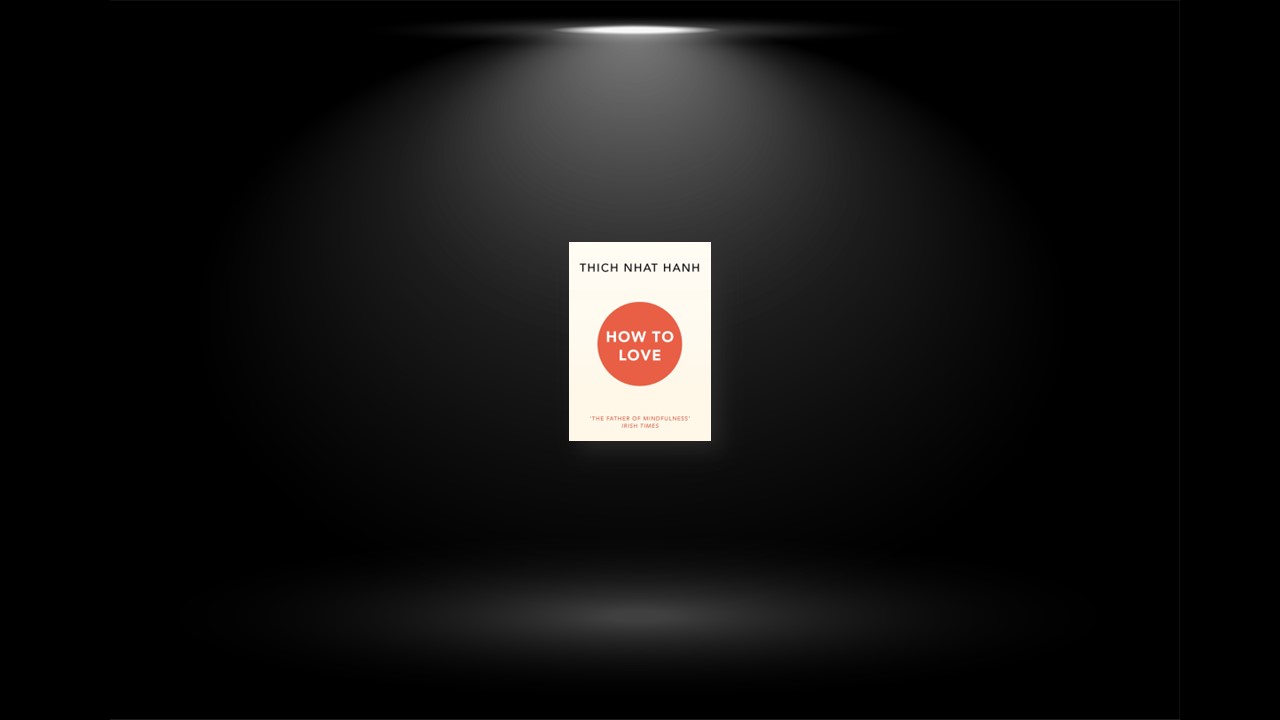Heart Like a River
If you pour a handful of salt into a cup of water, the water becomes undrinkable. But if you pour the salt into a river, people can continue to draw the water to cook, wash, and drink. The river is immense, and it has the capacity to receive, embrace, and transform. When our hearts are small, our understanding and compassion are limited, and we suffer. We can’t accept or tolerate others and their shortcomings, and we demand that they change. But when our hearts expand, these same things don’t make us suffer anymore. We have a lot of understanding and compassion and can embrace others. We accept others as they are, and then they have a chance to transform. So the big question is: how do we help our hearts to grow?
The Four Elements of True Love
True love is made of four elements: loving kindness, compassion, joy, and equanimity. In Sanskrit, these are, maitri, karuna, mudita, and upeksha. If your love contains these elements, it will be healing and transforming, and it will have the element of holiness in it. True love has the power to heal and transform any situation and bring deep meaning to our lives.
Loving Kindness
The first element of true love is loving kindness. The essence of loving kindness is being able to offer happiness. You can be the sunshine for another person. You can’t offer happiness until you have it for yourself. So build a home inside by accepting yourself and learning to love and heal yourself. Learn how to practice mindfulness in such a way that you can create moments of happiness and joy for your own nourishment. Then you have something to offer the other person.
Compassion
The second element of true love is compassion. Compassion is the capacity to understand the suffering in oneself and in the other person. If you understand your own suffering, you can help him to understand his suffering. Understanding suffering brings compassion and relief. You can transform your own suffering and help transform the suffering of the other person with the practice of mindfulness and looking deeply.
Joy
The third element of true love is the capacity to offer joy. When you know how to generate joy, it nourishes you and nourishes the other person. Your presence is an offering, like fresh air, or spring flowers, or the bright blue sky.
Equanimity
The fourth element of true love is equanimity. We can also call it inclusivesness or nondiscrimination. In a deep relationship, there’s no longer a boundary between you and the other person. You are her and she is you. Your suffering is her suffering. Your understanding of your own suffering helps your loved one to suffer less. Suffering and happiness are no longer individual matters. What happens to your loved one happens to you. What happens to you happens to your loved one.
Respect and Trust
Along with the traditional four elements of true love—loving kindness, compassion, joy, and equanimity—there are two more elements: respect and trust. These elements can be found in the four, but it helps to mention their names. When you love someone, you have to have trust and confidence. Love without trust is not yet love. Of course, first you have to have trust, respect, and confidence in yourself. Trust that you have a good and compassionate nature. You are part of the universe; you are made of stars. When you look at your loved one, you see that he is also made of stars and carries eternity inside. Looking in this way, we naturally feel reverence. True love cannot be without trust and respect for oneself and for the other person.
Three Strong Roots
To keep our commitment to our partner, and to weather the most difficult storms, we need strong roots. If we wait until there is trouble with our partner to try and solve it, we won’t have built strong enough roots to withstand the assault. Often we think we’re balanced when, in reality, that balance is fragile. We only need a slight breeze to blow for us to fall down. A juniper tree has its roots planted deep in the heart of the earth. As a result it is solid and strong. But some trees that appear to be quite steady, need only one raging storm to knock them down. Resilient trees can weather a violent storm because their roots are deep and firm. The roots of a lasting relationship are mindfulness, deep listening and loving speech, and a strong community to support you.
Three Helpful Sentences
It’s not healthy to keep anger inside for too long. If you’re too upset to speak calmly, you can write a note and put it where the other person will see it. Here are three sentences that may help. First: “My dear, I am suffering, I am angry, and I want you to know it.” The second is: “I am doing my best.” This means you are practicing mindful breathing and walking, and you are refraining from doing or saying anything out of anger. The third is: “Please help me.” Memorize these sentences. Or write them on a small piece of paper, the size of a credit card, and put it in your wallet. Then when you’re angry, you can take it out, and you will know exactly what to do.
Making Mistakes
Since we’re human beings, we make mistakes. We cause others to suffer. We hurt our loved ones, and we feel regret. But without making mistakes, there is no way to learn. If you can learn from your mistakes, then you have already transformed garbage into flowers. Very often, our mistakes come from our unskillfulness, and not because we want to harm one another. I think of our behavior in terms of being more or less skillful rather than in terms of good and bad. If you are skillful, you can avoid making yourself suffer and the other person suffer. If there’s something you want to tell the other person, then you have to say it, but do so skillfully, in a way that leads to less rather than more suffering.
Forgiveness
Many of us wait until it is too late to see what really matters to us. Sensual desire can feel so overwhelming that it’s often not until later that we see the many important things that have needed our attention. Everybody makes mistakes, but you can’t keep asking people to forgive you again and again. For example, instead of just saying, “I’m sorry I shouted at you,” you can train yourself not to shout so often. Instead of a quick apology, take the time and make the commitment to practice seeing the roots of your behavior.


